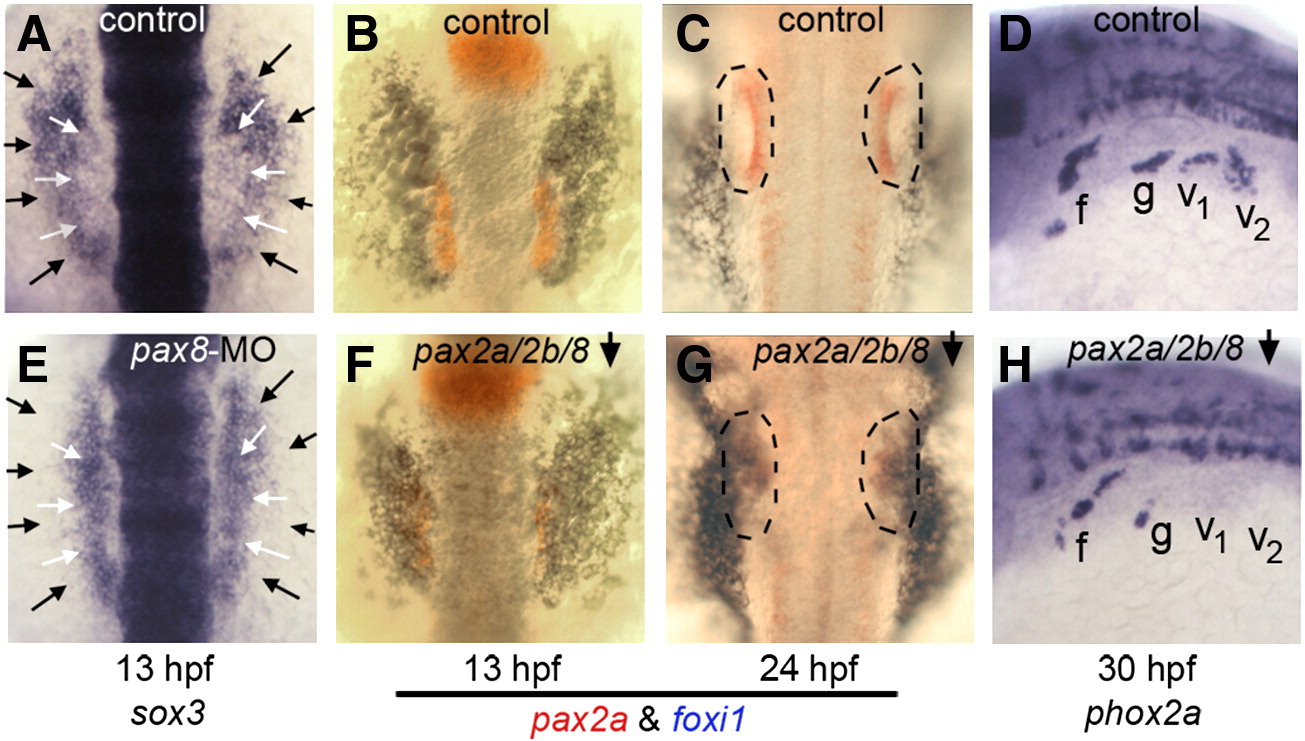Fig. 3 Requirement for pax2/8 in otic and epibranchial development. (A, E) Expression of sox3 at 13 hpf in a control embryo (A) and pax8 morphant (E). White arrows indicate the lateral edges of the otic domain and black arrows indicate the edges of the epibranchial domain. (B, C, F, G) Two color in situ hybridization of embryos at 13 hpf (B, F) and 24 hpf (C, G) showing expression of pax2a (red) and foxi1 (blue). Outlines indicate the otic vesicle (C) or vestigial otic region (G). Expression patterns are shown in control embryos (B, C) and pax2a/pax2b/pax8-deficient embryos (F, G). (D, H) Expression of phox2a at 30 hpf in a control embryo (D) and pax2a/2b/8-deficient embryo (H). Images show dorsal views with anterior to the top (A?C, E?G); dorsolateral views with anterior to the left and dorsal to the top (D, H). Positions of the facial ganglion (f), glossopharyngeal ganglion (g) and vagal ganglia (v1 and v2) are indicated.
Reprinted from Developmental Biology, 351(1), Padanad, M.S., and Riley, B.B., Pax2/8 proteins coordinate sequential induction of otic and epibranchial placodes through differential regulation of foxi1, sox3 and fgf24, 90-98, Copyright (2011) with permission from Elsevier. Full text @ Dev. Biol.

